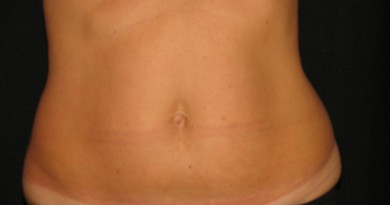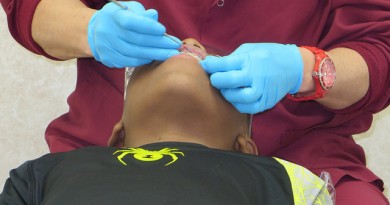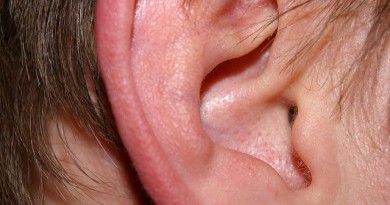How Much Does Allergy Testing Cost?
For those who live in countries without free medical care, allergy testing cost can be as low as $60 and as high as $2000. The cost of allergy testing varies per country and in some places per clinic. The cost of allergy testing also varies depending on what type of tests the patient has done. In the United States, those without insurance will usually pay around $150-$300 for a consultation with an allergist. The most common allergy test is a skin prick test; allergy testing cost for a skin prick test is $60-$300. The cost of skin prick tests vary depending on the amount of allergens tested – most clinics charge $3-$5 per allergen they test. Allergy testing is also done by doing a blood test. The cost of allergy testing with a blood test is far more expensive than the cost of allergy testing using the skin prick method. The cost of allergy testing using blood tests ranges from $200-$1000. The cost of allergy testing with blood tests varies depending on how many allergens are tested for – most clinics charge $10-$20 per allergen. For those without insurance, some doctors will offer a discount if the allergy testing costs are paid in full in cash or by credit card. Most insurance companies cover allergy tests. The cost of allergy testing varies per insurance plan, but the majority of people pay around $70 for it. In Canada, the cost of allergy testing is covered by the Canadian Health Care System and is free for all Canadians.
Allergy Testing Clinics
When a patient is suffering from allergies or a respiratory condition caused by allergies, their family doctor will often send them to an allergy testing clinic or an allergy testing lab. An allergy testing clinic is a specialty clinic that focuses on allergy diagnosis, treatment of symptoms and prevention of further allergy attacks. Allergy testing clinics also usually help people with asthma and other respiratory conditions that are caused or made worse by allergies. Allergy testing clinics and allergy testing labs will have board-certified allergists for patients to see. A board-certified allergist is specially trained to help patients with allergies and asthma, and is well versed in all the new allergy tests and procedures. In the United States, a consultation with an allergist usually costs around $150-$300 for those without insurance.
One new allergy test that a board-certified allergist would be trained in is ImmunoCap allergy testing. Some, but not all allergy testing labs now offer ImmunoCap testing. ImmunoCap allergy testing uses a blood sample to determine what a person is allergic to. There are over 500 different test allergens available with ImmunoCap testing. ImmunoCap allergy testing can also help the lab to determine if and/or when a child will outgrow a food allergy. ImmunoCap testing is often done when the skin prick test is not possible. ImmunoCap testing is not available in all allergy testing labs and clinics and is rather expensive. The cost of ImmunoCap allergy testing usually is about $10-$15 per allergen if the patient does not have insurance coverage.
Blood Allergy Test
There are several different types of blood allergy tests. One of the most common is called a RAST test (RAST is short for radioallergosorbent test). When an allergy blood test is done, the doctor will look for certain antibodies in the blood when it is exposed to allergens. Blood tests are often not as precise as skin prick allergy testing or intradermal allergy testing and are most often used on people who are unable to have a skin prick test done. Blood allergy tests are safer than skin prick allergy tests or intradermal allergy tests, as the patient is not directly exposed to the allergen. Blood tests are able to test around 400 different allergens. As many blood tests are not as precise as allergy tests such skin prick tests, often another testing method will also be used to increase the accuracy of the results. When a patient has blood allergy testing done they usually have a longer wait time for the results in comparison to intradermal allergy testing or skin prick testing, as the blood most be sent out to an allergy testing lab and tested. With both skin prick testing and Intradermal allergy testing the patient’s skin is tested, so results are usually seen within the hour. Allergy testing costs for blood allergy tests tend to be more than for other types of allergy testing due to the amount of lab work that needs to be done. For those without insurance, the cost of blood allergy tests range from $200-$1000 – most allergy clinics charge $10-$20 per allergen tested.
Home Allergy Test
Home allergy testing is an inexpensive and convenient way for people to test themselves for allergies. However, home allergy tests are a rather controversial topic among doctors and many feel they are absolutely worthless and cause more damage than good. The House of Lords in the United Kingdom feels that home allergy test kits are nothing but a fraud and that they slow patients from receiving the medical care they need, and that they should be outlawed. However, some advocates for self-care feel that doctors are simply trying to make more money by forcing patients to come to them to get allergy testing done and that home allergy tests work just as well as what a doctor could do, especially in cases of common allergies. There are many different allergy tests kits available – most can be bought online. Allergy test kits check a person’s blood for raised antibodies the same way an allergy testing lab does. Allergy test kits bought online usually cost about $20-$30 per allergen. There are also allergy test kits that test the ten most common allergens for $50. In addition, there are allergy test kits that one does at home, but is sent to a lab to get results; these test kits cost $200-$400. The cost of allergy test kits that can be used at home is significantly cheaper than paying to have a doctor do the test; however, they only test for extremely common allergies and are not as reliable as tests done by a doctor.
Allergy Testing For Children
Allergy testing for children is very similar to the testing done for adults, however due to their smaller size and increased sensitivity to pain some tests are more regularly used than others are. In addition, as children’s bodies are constantly growing and changing allergy tests are not as reliable for children as adults, especially for children under the age of two. The skin prick allergy test is the most commonly used test for both children and adults, as it is relatively cheap, easy to do and is one of the most accurate. It does cause a small amount of stinging, but is usually easily bearable by most children. When a skin prick allergy test is done on an adult it is often done on their arm, but as children have much smaller arms than adults do, often the test is done on their back instead. An intradermal skin test can also be done on children, but as it is more painful than the skin prick test it is not often used, especially on very young children. Blood allergy tests can also be done, but as they have a longer wait time for results and are more expensive than many of the other allergy tests they are usually not the preferred choice. In cases where a food allergy is suspected, many doctors will have parents do a food challenge for several weeks. This is when all suspect food is eliminated from the child’s diet and then slowly reintroduced one at a time. The parents are asked to keep careful notes on all symptoms and reactions. Even if the doctor chooses to send the child to an allergy clinic for tests, parents should keep careful records of any reactions or symptoms the child has had; the allergist will use the parent’s notes to help make an accurate diagnosis of the allergen. The cost of allergy testing for children is generally the same as for adults; prices vary per clinic, country and what insurance coverage the parents have.
Allergy Testing For Dogs
Just like people, dogs also suffer from allergies. Dogs can suffer from environmental or food allergies. If food allergies are suspected, most veterinarians will suggest trying an elimination diet for the dog to help identify the problem food. Elimination diets can be an excellent way to determine a food allergy; however, it takes dedication and commitment. The food the dog eats needs to be very carefully monitored and owners need to keep exact notes of what the dog eats and any reactions or symptoms the dog shows. Elimination diets can be difficult as they can take weeks or even months to accomplish their goal, and in some cases even after months of hard work, the food culprit may not be identified. Dog allergy testing cost using the elimination diet method is minimal, though owners may be required to buy specialty food or make homemade food for the duration of the diet.
If an elimination diet does not work for identifying the food allergen or if the allergy is an environmental allergy and not a food allergy, veterinarians can perform allergy tests on dogs that are very similar to the ones people take. The most common allergy test given to dogs is the intradermal skin test. This test can be used to identify both food and environmental allergens, and is considered the most accurate of the allergy tests performed on dogs. To do an intradermal skin test the veterinarian will have to shave a patch of the dog’s fur so he may inject the dog with suspected allergens. The injection site is examined a day or two later to see if there was a reaction.
Blood allergy tests can also be done on dogs. Blood allergy tests are far more convenient and easier to perform; however, they often do not have the accuracy of an intradermal skin test. There are two types of blood allergy tests that can be given to a dog, a RAST test and an ELISA test. The two blood tests are very similar, but the ELISA is the more accurate of the two. The most common problems with both of the blood tests are that their results are not as accurate and it usually takes several weeks to get the test results.
The cost of allergy testing for dogs varies per veterinarian clinic, country and whether the person has pet insurance or not. Dog allergy testing cost also varies depending on what type of testing is being done. The cost of allergy testing for dogs when blood tests are done ranges from $200-$300. The cost of allergy testing for dogs when intradermal skin testing is done is usually $200-$250. Once the allergen has been identified, an allergy vaccine can be purchased for the dog, where allergy vaccines cost anywhere from $65-$180 for a seven month supply. Dog allergy testing cost will also be increased by the full check up that will be needed before starting allergy testing.
- 726SHARES






